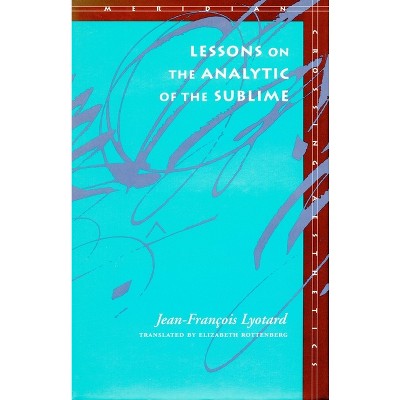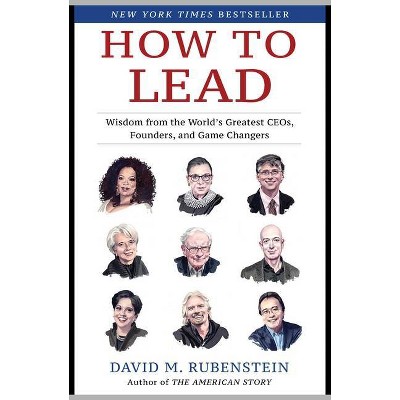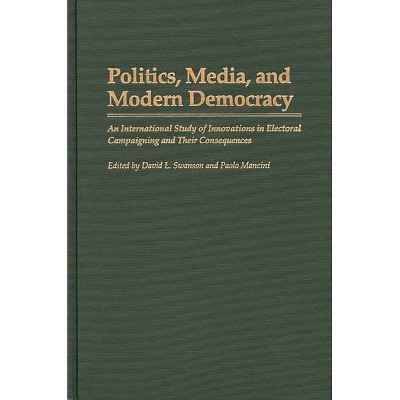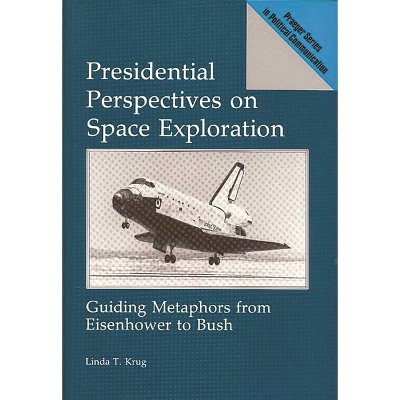Sponsored

The Media and Neo-Populism - (Praeger Political Communication) by Gianpietro Mazzoleni & Julianne Stewart & Bruce Horsfield (Hardcover)
In Stock
Sponsored
About this item
Highlights
- Mazzoleni, Stewart, Horsfield, and their contributors analyze the two-way relationship of the mass media and the contemporary phenomenon of extreme right wing neo-populist political parties which emerged in the closing years of the 20th century across the world.
- About the Author: GIANPIETRO MAZZOLENI is Professor of Sociology of Mass Communication and Political Communication at the University of Milan.
- 272 Pages
- Political Science, Political Process
- Series Name: Praeger Political Communication
Description
About the Book
Mazzoleni, Stewart, Horsfield, and their contributors analyze the two-way relationship of the mass media and the contemporary phenomenon of extreme right wing neo-populist political parties which emerged in the closing years of the 20th century across the world. The success of Jean-Marie Le Pen, leader of the neo-populist Front National, in the first French presidential ballot in April 2002 shows that these extremist parties have strong, if varying, electoral support. Drawn into reporting on the policies and antigovernment critiques of the new parties, the mass communication institutions, especially those engaged in news production, have been challenged by a variety of unconventional but effective political campaign strategies that caused many media professionals considerable challenge.
Taking an approach informed by mass communication theory, this book analyzes eight case studies of the interaction of news media dynamics and neo-populism in Austria, Australia, France, Canada, India, Italy, the United States, and the Latin American region against the background of widespread disenchantment with traditional parties and the complacency and cynicism of popularly elected governments. Insights into media responses reveal how dependent on media coverage the neo-populist parties were and how, in many cases, the media were initially unequal to the confronting ideologies of the new parties. Although the news media exploited the new parties, new parties exploited the news media as well in quite shrewd and original ways. This is an important resource for scholars, students, and other researchers involved with political mass communications and right-wing political organizations.
Book Synopsis
Mazzoleni, Stewart, Horsfield, and their contributors analyze the two-way relationship of the mass media and the contemporary phenomenon of extreme right wing neo-populist political parties which emerged in the closing years of the 20th century across the world. The success of Jean-Marie Le Pen, leader of the neo-populist Front National, in the first French presidential ballot in April 2002 shows that these extremist parties have strong, if varying, electoral support. Drawn into reporting on the policies and antigovernment critiques of the new parties, the mass communication institutions, especially those engaged in news production, have been challenged by a variety of unconventional but effective political campaign strategies that caused many media professionals considerable challenge.
Taking an approach informed by mass communication theory, this book analyzes eight case studies of the interaction of news media dynamics and neo-populism in Austria, Australia, France, Canada, India, Italy, the United States, and the Latin American region against the background of widespread disenchantment with traditional parties and the complacency and cynicism of popularly elected governments. Insights into media responses reveal how dependent on media coverage the neo-populist parties were and how, in many cases, the media were initially unequal to the confronting ideologies of the new parties. Although the news media exploited the new parties, new parties exploited the news media as well in quite shrewd and original ways. This is an important resource for scholars, students, and other researchers involved with political mass communications and right-wing political organizations.Review Quotes
?[P]rovides fascinating as well as disturbing material and should be essential reading for everyone interested in the often problematic relationship between media and politics.?-European Journal of Communication
?[T]his book is a much needed contribution to the understanding of a phenomenon that has challenged the entrenched institutions in a number of democracies.?-Political Science Quarterly
?There has been considerable academic scrutiny of the neo-populist parties that have emerged around the world in response to globalisation and the deepening socioeconomic divisions it has produced. This book, however, by focusing on populism's relationship with the media, offers a different perspective. The editors provide a helpful framework for analysis of the stages of this relationship and a comparison between elite and tabloid approaches to populism....Readers interested in populism or the media's role in contemporary democracies, will find much to interest them in this book.?-The Australian Journal of Politics and History
"ÝP¨rovides fascinating as well as disturbing material and should be essential reading for everyone interested in the often problematic relationship between media and politics."-European Journal of Communication
"ÝT¨his book is a much needed contribution to the understanding of a phenomenon that has challenged the entrenched institutions in a number of democracies."-Political Science Quarterly
"[P]rovides fascinating as well as disturbing material and should be essential reading for everyone interested in the often problematic relationship between media and politics."-European Journal of Communication
"[T]his book is a much needed contribution to the understanding of a phenomenon that has challenged the entrenched institutions in a number of democracies."-Political Science Quarterly
"There has been considerable academic scrutiny of the neo-populist parties that have emerged around the world in response to globalisation and the deepening socioeconomic divisions it has produced. This book, however, by focusing on populism's relationship with the media, offers a different perspective. The editors provide a helpful framework for analysis of the stages of this relationship and a comparison between elite and tabloid approaches to populism....Readers interested in populism or the media's role in contemporary democracies, will find much to interest them in this book."-The Australian Journal of Politics and History
About the Author
GIANPIETRO MAZZOLENI is Professor of Sociology of Mass Communication and Political Communication at the University of Milan. In addition he is Chair of the EuroMedia Research Group and Vice-chair of the Political Communication Division of the International Communication Association and serves on the editorial boards of The European Journal of Communication and of Political Communication. He is the author of La Comunicazione Politica (1998) and editor of the Italian scholarly journal Communicazione Politica.
JULIANNE STEWART is Lecturer in Mass Communication at the University of Southern Queensland. She has written about television policy in the Pacific Islands and Papua New Guinea and on new communication technologies in rural Queensland. BRUCE HORSFIELD is Associate Professor in Communication and Media Studies and Director of the Center for Communication Research and Development at the University of Southern Queensland, Australia. He has published widely on mass communication issues.Shipping details
Return details
Frequently bought together

Trending Non-Fiction
















